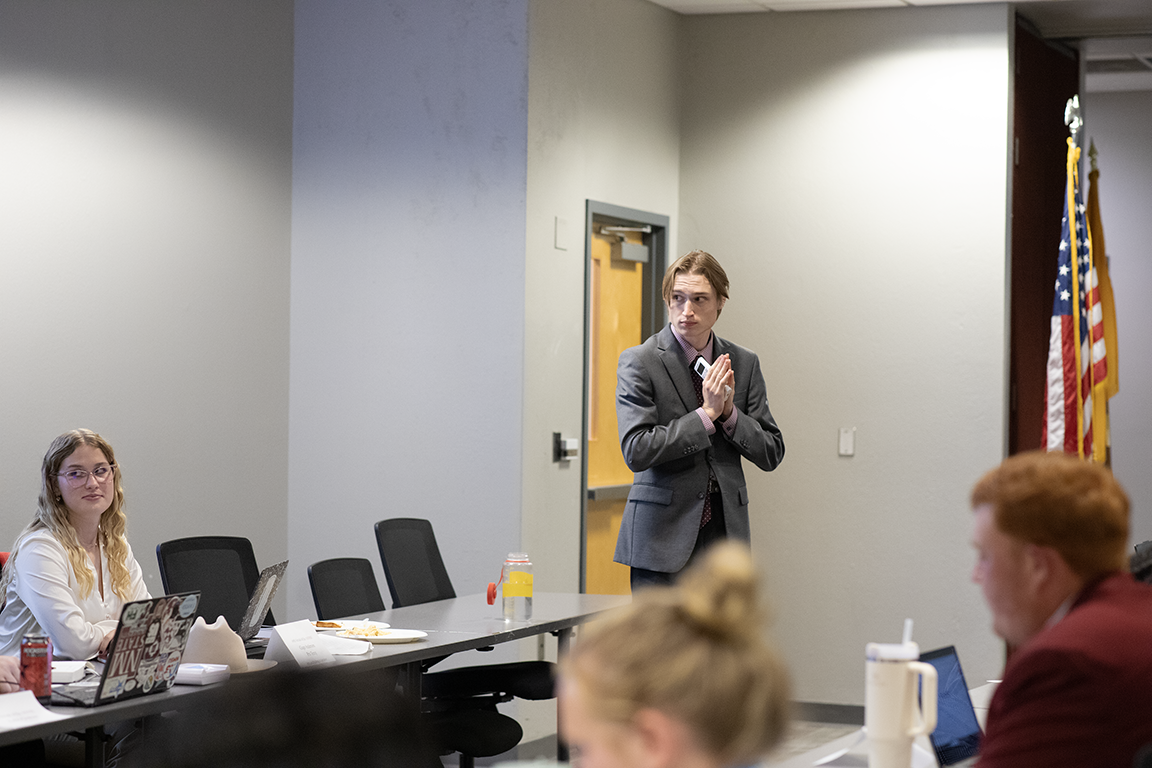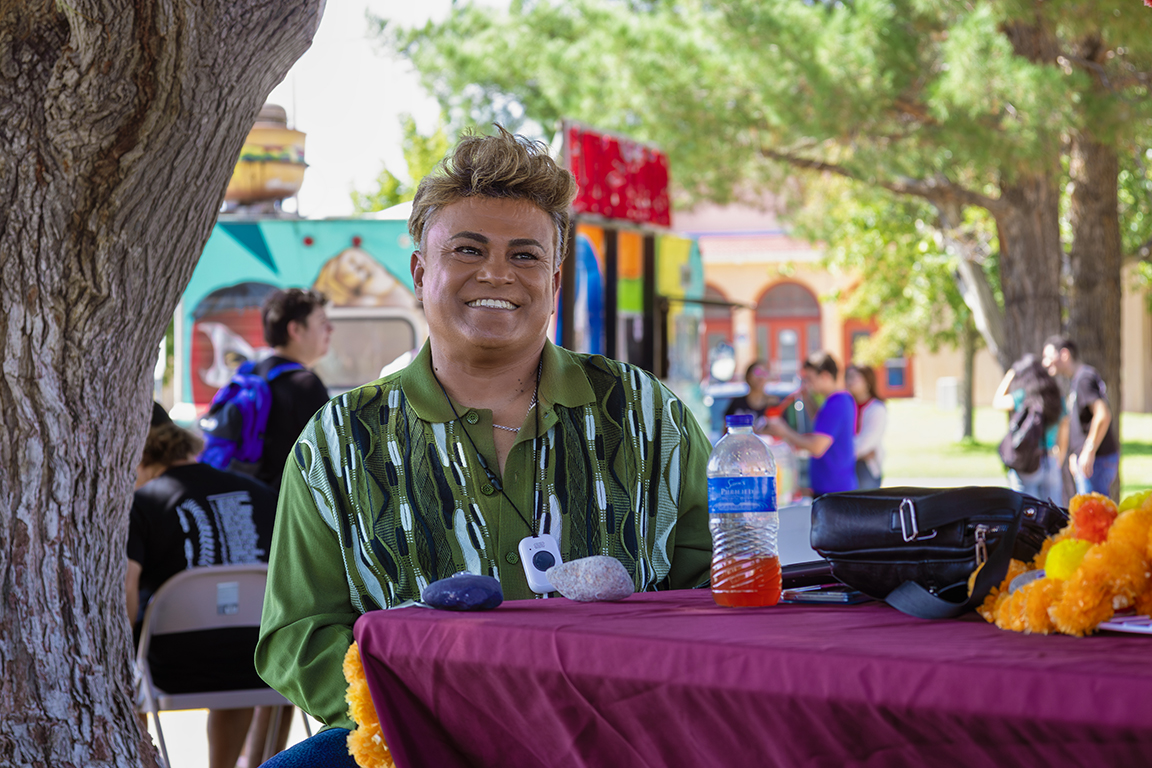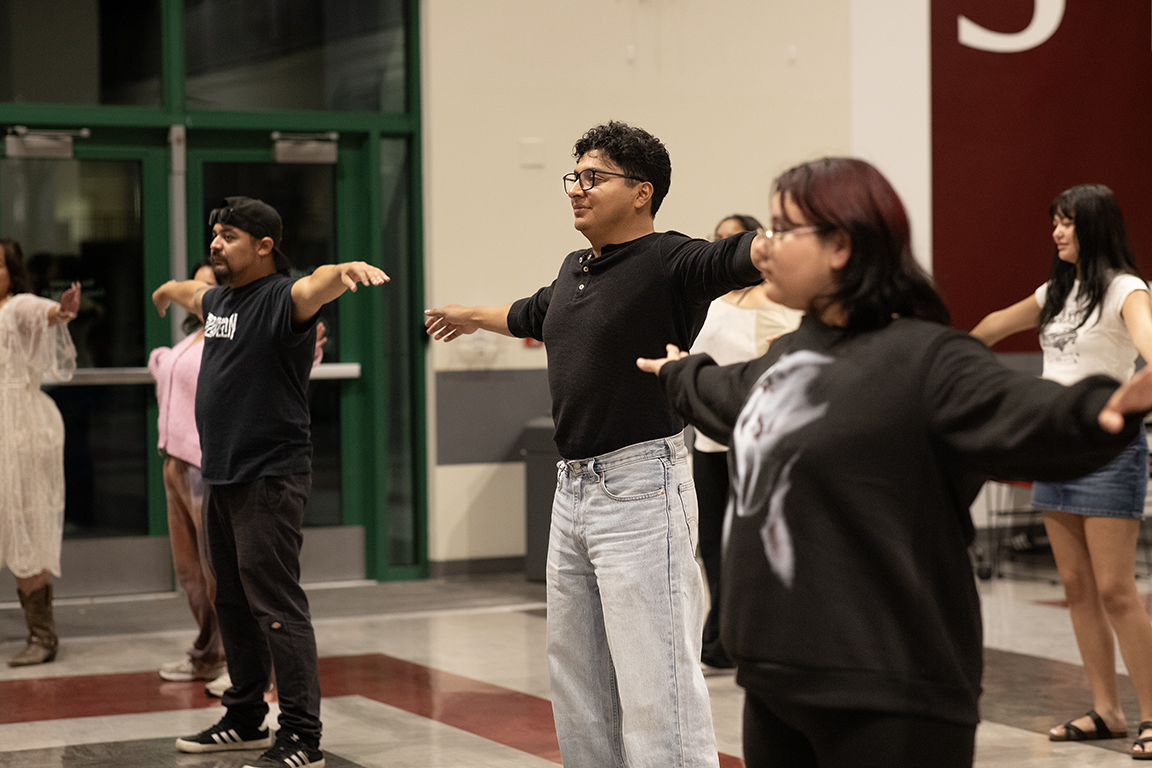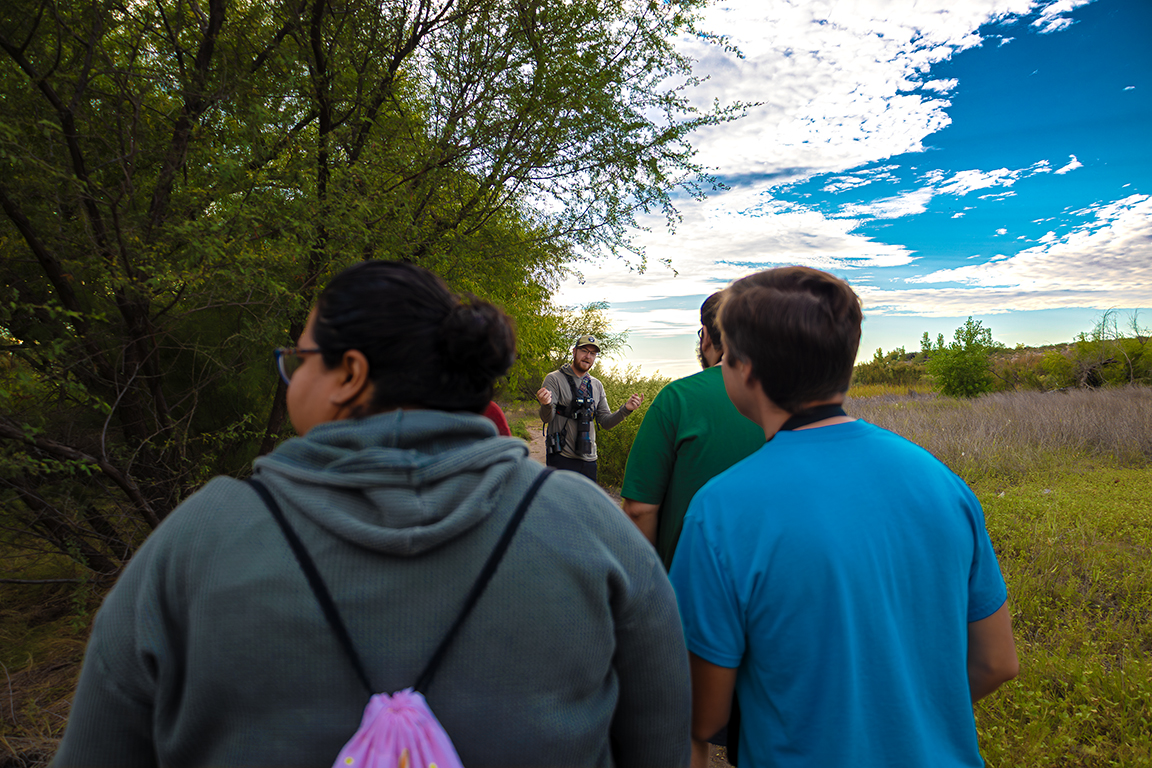The 69th Senate of the Associated Students of NMSU convened on Sept. 4 for their second session of the 2025-2026 academic year. It was their first session of the year passing legislation.
Under the new administration of ASNMSU President Wyatt Ziehe, the Senate’s agenda aimed to pass various bills that would clarify the bylaws of the ASNMSU Constitution. Some were at the recommendation of Attorney General Rahaf Ben Ali. Some bills applied to the Judicial Branch, such as Bill 5, introduced by Sen. Esperanza Baca, which puts justices under a new merit system.
At the beginning of the session, President Ziehe spoke about his concerns on how little money the previous, 68th Senate spent on their constituents’ needs.
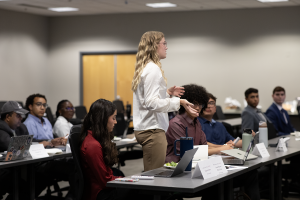
“I had a conversation with one of our comptrollers this past week, and kind of got some disturbing numbers,” Ziehe said. “So, last year, the entirety of the senate we spent $207,000 out of $400,000 of our funds. So let that sink in, we had $193,000 go unspent. We all stayed up until 2:00 a.m. in the last final meeting to pass all that $400,000 and still, $193,000 did not get spent.”
Ziehe mentioned the main reasons for the lack of spending he identified were forfeitures, outdated bylaws, and senators underestimating how much money students needed for expenses. He urged his colleagues to reach out more often.
“There are so many opportunities to get students money, and I really want to highly encourage and highly incentivize you stick to your recommended expenditures to spend that money every month,” Ziehe said.
Bill 67 presented by Sen. Saul Angel Hernandez proposed an amendment to lower the credit hour requirement for the senate scholarship from 15 hours to 12 hours. The 15-hour requirement is the NMSU credit hour criteria for scholarships, and the latter is the full-time student minimum. The senate scholarship is awarded to sitting senators by ASNMSU to help with the expenses of legislative duties.
Bill 67 would pass with amendments, with 20 votes for it and two against it.
Sen. Alexander Warner-Garrett voiced support for Hernandez’s amendment, stating he believed any credit hour requirement turns away potential senators.

“I actually think we should get rid of the credit hour requirement altogether,” Garrett said. “Whether you are taking one credit on Main Campus or 21 credits on Main Campus, you are still a member of ASNMSU and should be able to participate in student government. We have lots of precedent of previous senators who have been part time students. And then with graduate students, depending on their course of study, may only be taking six credits.”
Some senators and Attorney General Ben Ali protested the amendment. Anderson, who proposed the original bill, warned about changing the bylaws ‘recklessly’ in order to pass legislation that was contrary to NMSU’s set 15 credit hour criteria for scholarships.
“We already have exclusionary clauses for becoming an ASNMSU senator,” Anderson said. “You have to be a full-time student, you need to have a certain GPA, in order to get the scholarship. I think changing the bylaws to such an extent for such edge cases is, if not reckless, just missing the point of why this legislation is here in the first place. To set clear, perhaps arbitrary, guidelines for who is and who is not eligible because we kept running into this issue in the past.”


